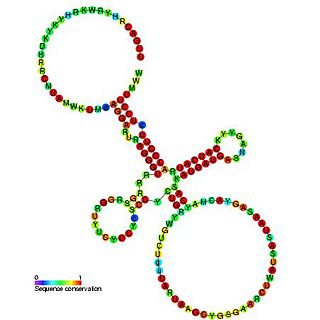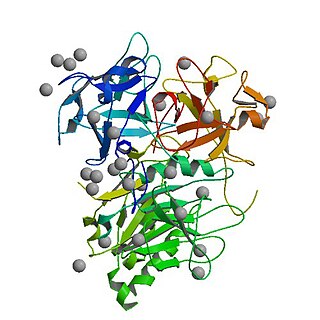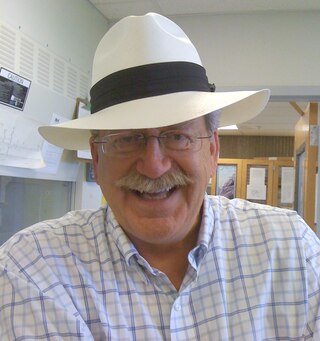Related Research Articles

Gram-negative bacteria are bacteria that unlike gram-positive bacteria do not retain the crystal violet stain used in the Gram staining method of bacterial differentiation. Their defining characteristic is their cell envelope, which consists of a thin peptidoglycan cell wall sandwiched between an inner (cytoplasmic) membrane and an outer membrane. These bacteria are found in all environments that support life on Earth.

Stanley "Stan" Falkow was an American microbiologist and a professor of microbiology at Georgetown University, University of Washington, and Stanford University School of Medicine. Falkow is known as the father of the field of molecular microbial pathogenesis. He formulated molecular Koch's postulates, which have guided the study of the microbial determinants of infectious diseases since the late 1980s. Falkow spent over 50 years uncovering molecular mechanisms of how bacteria cause disease and how to disarm them. Falkow also was one of the first scientists to investigate antimicrobial resistance, and presented his research extensively to scientific, government, and lay audiences explaining the spread of resistance from one organism to another, now known as horizontal gene transfer, and the implications of this phenomenon on our ability to combat infections in the future.

Lysogeny broth (LB) is a nutritionally rich medium primarily used for the growth of bacteria. Its creator, Giuseppe Bertani, intended LB to stand for lysogeny broth, but LB has also come to colloquially mean Luria broth, Lennox broth, life broth or Luria–Bertani medium. The formula of the LB medium was published in 1951 in the first paper of Bertani on lysogeny. In this article he described the modified single-burst experiment and the isolation of the phages P1, P2, and P3. He had developed the LB medium to optimize Shigella growth and plaque formation.

Filamentation is the anomalous growth of certain bacteria, such as Escherichia coli, in which cells continue to elongate but do not divide. The cells that result from elongation without division have multiple chromosomal copies.

DNA adenine methylase, (Dam) (also site-specific DNA-methyltransferase (adenine-specific), EC 2.1.1.72, modification methylase, restriction-modification system) is an enzyme that adds a methyl group to the adenine of the sequence 5'-GATC-3' in newly synthesized DNA. Immediately after DNA synthesis, the daughter strand remains unmethylated for a short time. It is an orphan methyltransferase that is not part of a restriction-modification system and regulates gene expression. This enzyme catalyses the following chemical reaction

Sib RNA refers to a group of related non-coding RNA. They were originally named QUAD RNA after they were discovered as four repeat elements in Escherichia coli intergenic regions. The family was later renamed Sib when it was discovered that the number of repeats is variable in other species and in other E. coli strains.

The Hfq protein encoded by the hfq gene was discovered in 1968 as an Escherichia coli host factor that was essential for replication of the bacteriophage Qβ. It is now clear that Hfq is an abundant bacterial RNA binding protein which has many important physiological roles that are usually mediated by interacting with Hfq binding sRNA.

Microbiology is the scientific study of microorganisms, those being of unicellular (single-celled), multicellular, or acellular. Microbiology encompasses numerous sub-disciplines including virology, bacteriology, protistology, mycology, immunology, and parasitology.
Roberto Kolter is Professor of Microbiology, Emeritus at Harvard Medical School, an author, and past president of the American Society for Microbiology. Kolter has been a professor at Harvard Medical School since 1983 and was Co-director of Harvard's Microbial Sciences Initiative from 2003-2018. During the 35-year term of the Kolter laboratory from 1983 to 2018, more than 130 graduate student and postdoctoral trainees explored an eclectic mix of topics gravitating around the study of microbes. Kolter is a fellow of the American Association for the Advancement of Science and of the American Academy of Microbiology.
Omptins are a family of bacterial proteases. They are aspartate proteases, which cleave peptides with the use of a water molecule. Found in the outer membrane of gram-negative enterobacteria such as Shigella flexneri, Yersinia pestis, Escherichia coli, and Salmonella enterica. Omptins consist of a widely conserved beta barrel spanning the membrane with 5 extracellular loops. These loops are responsible for the various substrate specificities. These proteases rely upon binding of lipopolysaccharide for activity.

Cytolethal distending toxins are a class of heterotrimeric toxins produced by certain gram-negative bacteria that display DNase activity. These toxins trigger G2/M cell cycle arrest in specific mammalian cell lines, leading to the enlarged or distended cells for which these toxins are named. Affected cells die by apoptosis.

John Roger Roth is an American geneticist, bacterial physiologist, and evolutionist. He is a Distinguished Professor of Biological Sciences at the University of California, Davis.
Jayaraman Gowrishankar is an Indian medical microbiologist. Gowrishankar received his M.B.B.S. degree from the Christian Medical College, Vellore. He holds Doctor of philosophy in bacterial genetics from the University of Melbourne.
Bacterial effectors are proteins secreted by pathogenic bacteria into the cells of their host, usually using a type 3 secretion system (TTSS/T3SS), a type 4 secretion system (TFSS/T4SS) or a Type VI secretion system (T6SS). Some bacteria inject only a few effectors into their host’s cells while others may inject dozens or even hundreds. Effector proteins may have many different activities, but usually help the pathogen to invade host tissue, suppress its immune system, or otherwise help the pathogen to survive. Effector proteins are usually critical for virulence. For instance, in the causative agent of plague, the loss of the T3SS is sufficient to render the bacteria completely avirulent, even when they are directly introduced into the bloodstream. Gram negative microbes are also suspected to deploy bacterial outer membrane vesicles to translocate effector proteins and virulence factors via a membrane vesicle trafficking secretory pathway, in order to modify their environment or attack/invade target cells, for example, at the host-pathogen interface.
Frederick C. Neidhardt (1931-2016) was an American microbiologist who was on the faculty at Purdue University and the University of Michigan. He is known for his work on the physiology and biochemistry of bacterial growth and for early work in bacterial proteomics.

Maxime Simon Schwartz, born in June 1940 in Blois (Loir-et-Cher), is a French molecular biologist who has been a research director at the CNRS, a professor at the Pasteur Institute and Director General of the Pasteur Institute. He is a correspondant of the French Academy of sciences.
Iruka Okeke is a Nigerian pharmaceutical microbiologist currently holding the position of professor at the College of Medicine,University of Ibadan in Nigeria. Iruka's career is the study neglected enteric bacteria such as E. coli, known for their potential to cause fatal bloodstream and diarrheal infections. She advocates for the utilization of Genomics approaches to enhance surveillance and gain a better understanding of pathogen virulence. Iruka's research interests extend to combating antimicrobial resistance and investigating bacterial pathogenesis, epidemiology, and antimicrobial resistance of enteric bacteria. Iruka's contributions to the field have earned her recognition as a fellow of esteemed institutions such as the Nigerian Academy of Sciences, and African Academy of Sciences.[1]
Abraham Eisenstark was an American professor of microbiology. He was a Guggenheim Fellow for the academic year 1958–1959.
Armen Trchounian was an Armenian biophysicist. D.Sc. in Biological sciences (1990) and professor (2002), Corresponding Member of NAS RA (2006) and Head of the Department of Biochemistry, Microbiology, and Biotechnology of Yerevan State University (2016–2020).
Edward Allen Adelberg (1920–2009) was a founder of microbial genetics and biochemist who spent much of his career at Yale University. He was a member of the National Academy of Sciences and co-author of influential textbooks.
References
- 1 2 3 4 "Adjunct Faculty - Moselio Schaechter". San Diego State University. Retrieved 1 November 2016.
- ↑ Schaechter, Moselio. "Elio's Memoirs" . Retrieved 1 November 2016.
- ↑ Schaechter, Moselio, ed. (2009). Encyclopedia of microbiology (3rd ed.). [S.l.]: Elsevier. ISBN 978-0-12-373944-5.
- ↑ Schaechter, Moselio, ed. (2012). Eukaryotic microbes. Amsterdam: Elsevier/Academic Press. ISBN 978-0-12-383876-6.
- ↑ "Moselio Schaechter Distinguished Service Award". American Society for Microbiology. Retrieved 1 November 2016.
- ↑ "About Small Things Considered". Small Things Considered. Retrieved 1 November 2016.
- ↑ "This Week in Microbiology". Microbe World. Archived from the original on 1 November 2016. Retrieved 1 November 2016.
- ↑ Schaechter, Moselio (21 April 2015). "A brief history of bacterial growth physiology". Frontiers in Microbiology. 6: 289. doi: 10.3389/fmicb.2015.00289 . PMC 4404942 . PMID 25954250.
- ↑ Schaechter, M.; The View From Here Group (1 March 2001). "Escherichia coli and Salmonella 2000: the View From Here". Microbiology and Molecular Biology Reviews. 65 (1): 119–130. doi:10.1128/MMBR.65.1.119-130.2001. PMC 99021 . PMID 11238988.
- ↑ Ogden, GB; Pratt, MJ; Schaechter, M (1 July 1988). "The replicative origin of the E. coli chromosome binds to cell membranes only when hemimethylated". Cell. 54 (1): 127–35. doi:10.1016/0092-8674(88)90186-9. PMID 2838178. S2CID 37707837.
- ↑ Schaechter, Elio (1997). In the company of mushrooms : a biologist's tale (1st paperback ed.). Cambridge, Mass.: Harvard University Press. ISBN 978-0674445543.